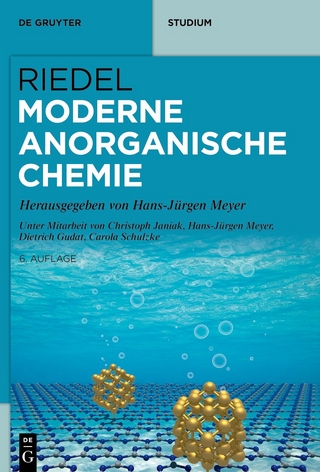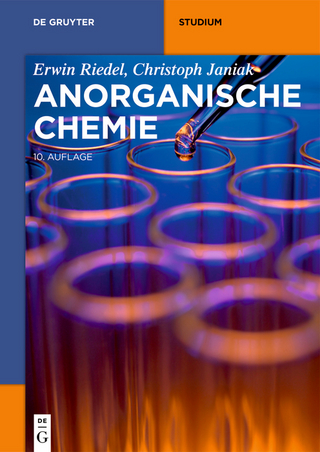
Water-Stable Metal-Organic Frameworks (WSMOFs)
Elsevier - Health Sciences Division (Verlag)
978-0-443-29256-9 (ISBN)
- Noch nicht erschienen (ca. Januar 2025)
- Versandkostenfrei
- Auch auf Rechnung
- Artikel merken
Lei Guo received his PhD degree in materials chemistry from the Chongqing university of china. His research is dedicated to synthesis and characterization of organic molecules and their application towards corrosion inhibition property for the protection of metals and alloys from acid corrosion. His interests also encompass theoretical and experimental research in condensed matter physics Tahir Rasheed is a researcher at the Interdisciplinary Research Center for Advanced Materials, King Fahd University of Petroleum and Minerals, Saudi Arabia. His research interests focus on multiple disciplines including controllable synthesis, characterization and self-assembly of polymeric materials, polymer-based composites, nanomaterials and nanocomposites, and hybrid nanocomposites, with special emphasis on their potential applications in the field of sensing and biosensing, electrocatalysis, and the degradation and quantification of various emerging pollutants. Chandrabhan Verma is researcher in the Department of Chemical and Petroleum Engineering at Khalifa University, Abu Dhabi, United Arab Emirates. His research mainly focuses on synthesising and designing environmentally friendly corrosion inhibitors useful for industrial applications. Prof. Chaudhery Mustansar Hussain is an Adjunct Professor and Director of laboratories in the Department of Chemistry & Environmental Sciences at the New Jersey Institute of Technology (NJIT), Newark, New Jersey, United States. His research is focused on the applications of nanotechnology and advanced materials, environmental management, analytical chemistry, and other various industries. Dr. Hussain is the author of numerous papers in peer-reviewed journals as well as a prolific author and editor of around 150 books, including scientific monographs and handbooks in his research areas.
Part 1: BASICS and FUNDAMENTALS
1. Water-stable MOFs-based Materials: Fundamental, Properties and Applications
2. Water-stable MOFs-based Materials: Synthesis, Design, and Characterization
3. Theoretical Modeling to Design Water-stable MOFs-based Materials
4. Stability (thermodynamics) of Water-stable MOFs-based Materials
5. Selection Criteria of Water-stable MOFs-based Materials for Environmental and Sensing Applications
Part 2: Water-stable MOFs-based Materials for Environmental Remediation
6. Water-stable MOFs-based Materials for Remediation of Water Soluble Gases
7. Water-stable MOFs-based Materials for Removal of Toxic Heavy Metals
8. Water-stable MOFs-based Materials for Sequestration of Radionuclides and Toxic Ions
9. Water-stable MOFs-based Materials for Removal of Pharmaceutical-based Pollutants
10. Water-stable MOFs-based Materials for Removal of Organic Dyes
11. Water-stable MOFs-based Materials for Sorption Degradation of Personal Care Products
12. Water-stable MOFs-based Materials for Degradation of Pesticides
Part 3: Water-stable MOFs-based Materials for Sensing Applications
13. Water-stable MOFs-based Materials as Electrochemical Sensors
14. Water-stable MOFs-based Materials as Optical Sensors
15. Water-stable MOFs-based Materials as Biosensors
16. Water-stable MOFs-based Materials as Analytical/Biosensing Applications
17. Water-stable MOFs-based Materials for Strain Sensors
18. Water-stable MOFs-based Materials for Other Sensing Applications
19. Cost analysis for scaling up the MOFs-based Materials for industrial applications
| Erscheint lt. Verlag | 1.1.2025 |
|---|---|
| Verlagsort | Philadelphia |
| Sprache | englisch |
| Maße | 152 x 229 mm |
| Themenwelt | Naturwissenschaften ► Chemie ► Anorganische Chemie |
| ISBN-10 | 0-443-29256-6 / 0443292566 |
| ISBN-13 | 978-0-443-29256-9 / 9780443292569 |
| Zustand | Neuware |
| Haben Sie eine Frage zum Produkt? |
aus dem Bereich


